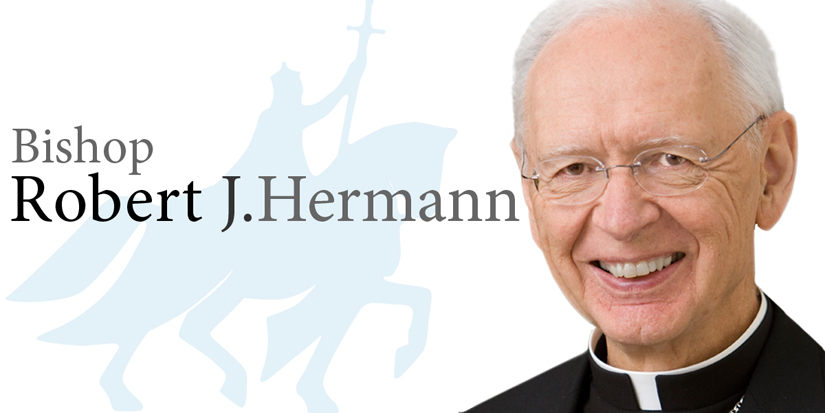 The readings for the Eighth Sunday in Ordinary Time point to the fact that humans can’t realize their full potential without help from God. Without Jesus Christ, we will always be frustrated in attempting to find the happiness to which we are called.
The readings for the Eighth Sunday in Ordinary Time point to the fact that humans can’t realize their full potential without help from God. Without Jesus Christ, we will always be frustrated in attempting to find the happiness to which we are called.
In the first reading, Sirach uses an image with which every farmer is familiar. Inside every combine harvesting wheat or soybeans, there is a moving sieve or wire screen separating the straw from the grain. Beneath that screen, a powerful wind blows away whatever husks fall through the screen with the grain. Hence the desired product is the pure grain severed from all elements of the stalk.
He uses this as a metaphor for what goes through our mind. He says: “So too does one’s speech disclose the bent of one’s mind. Praise no one before he speaks, for it is then that people are tested.”
The implication is clear. If the machine doesn’t operate properly, there will be a lot of husks mixed in with the grain. So it is with human thoughts. If we don’t invite Jesus to purify our hearts, our speech will test us before others.
How often have you heard someone say: “If only I could take those words back,” or “I should have bitten my tongue before I spoke.” Our faults cry out to our Savior for help.
In the Gospel, Jesus uses similar images. The mixture of the pure and the impure cannot produce something pure. “Can a blind person guide a blind person? …Why do you notice the splinter in your brother’s eye, but do not perceive the wooden beam in your own?”
Jesus essentially says that negative human behavior can’t help someone who is suffering from the same human character flaw.
Jesus continues, “A good person out of the store of goodness in his heart produces good, but an evil person out of a store of evil produces evil; for from the fullness of the heart the mouth speaks.”
Implicitly Jesus says to us: “If you are going to produce good fruit, you need My help, for by yourselves you can do nothing.”
The responsorial psalm gives us a wholesome vision of what our life ought to be like: “The just one shall flourish like the palm tree, like a cedar of Lebanon shall he grow. They that are planted in the house of the Lord shall flourish in the courts of our God.” When we are rooted in Jesus Christ, good fruit will abound in our lives. God is the source of our fruitfulness.
In the second reading, Paul gives us the power source of transformation: the resurrection of Jesus Christ. “When this which is corruptible clothes itself with incorruptibility and this which is mortal clothes itself with immortality, then the word that is written shall come about:
“Death is swallowed up in victory. Where, O death, is your victory? Where, O death is your sting?”
“But thanks be to God who gives us the victory through our Lord Jesus Christ.”
Transformation is the work of God, and not our doing. We may exhaust our energies and fail miserably in trying to perfect ourselves. “Why do I keep beating myself up because of my failures to live up to my expectations when Jesus wants me to invite Him into the problem in order to help me?”
Jesus desires to have a friendly partnership with us. He wants daily dialogue with our hearts.
Remember the Gospel story of Martha and Mary? Mary just wanted to sit at the feet of Jesus and take in His every word, to take in the transforming love that comes with that word. The time we spend in quiet prayer with Jesus, or the time we spend in reflecting on His psalms or the Gospels, is time that creates healthy and happy memories.
The consolations we receive in prayer are intended to nurture us and to help our memory bank store up those good experiences of friendship with Jesus. When tough times come, as we should expect, those memories of closeness will take away the fear of caving in to our weaknesses or condemning ourselves for not being more perfect.
The time we spend with Jesus in prayer is not an isolated time, but it becomes part of the fabric of our relationship with Jesus. Married couples can look back to those moments of great intimacy as moments that strengthen them when trials come along. Building intimate memories with Jesus gives us the strength to weather new trials. In weathering new trials, our friendship is deepened.
Some people find it threatening to sit in silence with Jesus because they mistakenly think that if they don’t talk, nothing is happening. I always suggest that people talk to Jesus briefly, asking Him to help them experience Him in prayer. Then it’s imperative that they sit in silence, perhaps occasionally saying over and over a brief mantra, such as “Jesus I love you.”
They may say that Jesus doesn’t answer. I ask them: “When you sit in silence, what do you feel inside?” They will inevitably say that they are experiencing peace. I tell them that that is Jesus’ language. He starts by giving us a quiet peace.
Later on, as we experience this over and over again, we may begin to hear Him speak to the hungers of our hearts. It may come in the form of a scriptural verse, such as “Taste and see the goodness of the Lord,” or “As the Father has loved Me, so have I loved you. Live on in My love.”